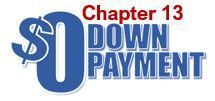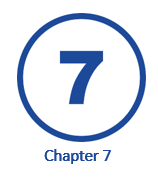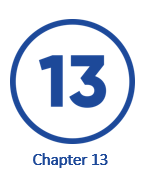
$0 Down, Low Fees, and Payment Plans Available

FREE Consultation
Boca Raton: (561) 369-3655
Port St. Lucie:
(772) 344-9044
You’ve Got Bankruptcy Questions
We’ve Got The Answers
Despite their best efforts or intentions, good people sometimes find themselves facing extremely difficult situations. Maybe they've made a few mistakes or maybe it was caused by something completely beyond their control. Either way, it can feel overwhelming, and it might even seem like there is no way out.
Whatever happens, don't despair! You don't have to face your problems alone. Here at the Law Offices of Robert A. Feldman, we understand your situation and we can help.
Answers to your most frequently asked bankruptcy questions
Chapter 7 Bankruptcy Questions and Answers
-
What is a bankruptcy?
People who are having trouble paying their debts may file for bankruptcy as a solution to their situation. In the most general terms, a bankruptcy is a legal proceeding where a person (known as a “debtor”) seeks to get a “discharge”, which will typically eliminate most or all of their debts, and, at the same time, potentially protect their home, vehicle(s), personal property, bank accounts, retirement accounts and wages. The two most common types of bankruptcies are referred to as Chapter 7 and Chapter 13.
-
Do I need an attorney to represent me in my bankruptcy case?
Each Debtor filing an individual bankruptcy has a right to represent him or herself (Pro Se Debtor); however, the use of an attorney is recommended. Ignorance of the law may cost an individual far more than an attorney's fee. By law, a Corporation is required to have an attorney. Note: Individuals who choose to represent themselves will not be able to obtain legal advice from court personnel or from the trustee appointed to their case.
-
What happens when a bankruptcy petition is filed?
The commencement of a bankruptcy case creates an "estate." The estate technically becomes the temporary legal owner of all of the Debtor's property. The estate consists of all legal or equitable interests of the Debtor in property as of the date the case is filed, including property owned or held by another person if the Debtor has an interest in the property. Section 362 of the Bankruptcy Code governs the applicability of the "automatic stay" to the facts and circumstances of your bankruptcy case. If it applies, it prohibits creditors from taking collection action against the Debtor or the Debtor's property without Bankruptcy Court approval. The Court issues a notice of commencement advising all interested parties of the filing of the bankruptcy case. This notice provides the case number, trustee, date of the meeting of creditors, deadline to file a proof of claim (if applicable), and deadline to file an objection to the discharge (if applicable).
-
What is a chapter 7 trustee?
The administration of a bankruptcy case is handled by an individual, called a Trustee, who is specifically assigned by the bankruptcy court for that purpose. The duties of the Trustee include verifying the accuracy of the debtors' bankruptcy petition and schedules, determining the debtors' financial circumstances related to their bankruptcy filing, and making sure that the creditors are being treated properly under the law. In addition, the Chapter 7 Trustee is responsible for liquidating the debtors' non exempt property (or for disbursing the money received from the debtors in order to retain such property) for the benefit of the creditors.
-
What is the entry of discharge?
In a Chapter 7 bankruptcy, the debtors will typically receive their discharge just over 60 days after the date of the Meeting of Creditors. Although there are circumstances that could delay or even prevent the debtor from receiving a discharge in a bankruptcy case, these are usually limited to situations where the debtor has proven to be uncooperative with the bankruptcy Trustee or has perpetrated some type of fraud or deception.
-
What is Homestead property?
If the debtors have owned and continuously resided in a Florida home for at least 40 months (1,215 days), then the entire amount of equity in their current home may be protected. If the debtors have owned and continuously resided in a Florida home for less than the required 40 months, then up to $189,050.00 of equity in the home per debtor may be protected.
Answers to your most frequently asked bankruptcy questions
Chapter 13 Bankruptcy Questions and Answers
-
Do I need to take a credit counseling course?
With very limited exceptions, all debtors must take a credit counseling course before they can file their bankruptcy case. This course, which can be taken on-line, will explain the different alternatives available aside from bankruptcy and will assist the debtors with a budget analysis. The course must be provided by a non‑profit counseling agency that has been approved by the office of the United States Trustee and must be done within the 180 day period immediately before the bankruptcy case is filed.
-
What is the preparation and filing of the petition and chapter 13 plan?
To file a bankruptcy case, debtors must prepare and file a “petition” with the bankruptcy court. The petition is signed by the debtors and is submitted with several other documents called “schedules”, which list all of the debtors' assets, debts, income, and expenses, as well as other important financial information. The schedules must be completed truthfully and accurately, as they are meant to give the bankruptcy court a very detailed picture of the debtors' finances at the time that the petition is filed. In addition, the debtors must file a certificate showing completion of the credit counseling requirement and any pay stubs that they received within the 60 day period immediately before the bankruptcy filing. Lastly, the debtors must file a proposed Chapter 13 plan which explains to the bankruptcy court and the creditors how the debtors intend to make payments on their debts, typically over a period of from 3 to 5 years.
-
What is a chapter 13 trustee?
The administration of a bankruptcy case is handled by an individual, called a Trustee, who is specifically assigned by the bankruptcy court for that purpose. The duties of the Trustee include verifying the accuracy of the debtors' bankruptcy petition and schedules, determining the debtors' financial circumstances related to their bankruptcy filing, and making sure that the creditors are being treated properly under the law. In addition, the Chapter 13 Trustee is responsible for evaluating the debtors' proposed bankruptcy payment plan and for disbursing all payments made pursuant thereto.
-
How do I make payments in a chapter 13 plan?
In a Chapter 13 bankruptcy, the debtors must begin making payments to the Trustee pursuant to the Chapter 13 plan within 30 days of the date of filing of the petition. The debtors must continue making these payments each and every month for the duration of their Chapter 13 plan, which is typically between 3 and 5 years. It is very important for the debtors to make all of their payments as they come due during the course of their Chapter 13 plan. If they fall behind in their payments, their case may be dismissed by the bankruptcy court upon the request of the Trustee or a creditor.
-
What is a confirmation hearing?
The proposed Chapter 13 plan needs to be “confirmed” (approved) by the bankruptcy judge before it can take full effect. However, before this can happen, the trustee, creditors, and all other interested parties are given the opportunity to review the plan and decide if they agree with it. If a party is not satisfied with how they are being treated in the proposed plan, they may file an objection. The confirmation hearing is where these filed objections are brought up and potentially heard by the bankruptcy judge. In most cases, only the debtors' attorney (if they have one) will need to appear at the scheduled confirmation hearing. If the Chapter 13 plan is not approved at this hearing, then an amended Chapter 13 plan would likely need to be proposed and a new confirmation hearing would likely be scheduled.
-
What is the entry of discharge?
In a Chapter 13 bankruptcy, the debtors will typically receive their discharge within 60 days after the successful completion of their Chapter 13 plan. Although there are circumstances that could delay or even prevent the debtor from receiving a discharge in a bankruptcy case, these are usually limited to situations where the debtor has proven to be uncooperative with the bankruptcy Trustee or has perpetrated some type of fraud or deception.
-
What is an automatic stay and why is it important?
A very important aspect of bankruptcy is the “automatic stay” which generally goes into effect as soon as the bankruptcy petition is filed. This automatic stay prevents creditors from continuing any type of collection efforts or bothering the debtors in any way about money owed to them unless they get special permission from the Bankruptcy Court. This automatic stay includes, with some limitations, the immediate stopping of such things as lawsuits, foreclosures, repossessions, garnishments, collection letters, and harassing phone calls.
Answers to your most frequently asked bankruptcy questions
Wage Garnishment Questions and Answers
-
How do you stop wage garnishment in Florida?
A Chapter 7 or Chapter 13 case will put an immediate stop to a wage or bank account garnishment. In some cases, a head of household exemption may also stop a garnishment. However, the exemption will typically require a few weeks to take effect and the creditor will still be able to pursue other forms of collection, including future garnishments.
-
Will bankruptcy stop a wage garnishment?
Chapter 7 or Chapter 13 bankruptcy will put an immediate stop to a wage or bank account garnishment. You will not have to wait for a court hearing, the garnishment will be stopped instantly when the bankruptcy is filed.
-
Can my wages be garnished without notice?
Florida law only requires the lender to mail notice, it does not require they prove you received it. Therefore, most borrowers will not receive any notice until they see the money missing from their paycheck.
-
What income is exempt from garnishment in Florida?
According to Florida Statute 222.11, a head of family whose earnings are $500 per week or less is exempt from wage garnishment. If you are a head of family and you earn more than $500 per week, the amount garnished is calculated based only on the amount you earn in excess of $500.
-
Can I quit my job to avoid wage garnishment?
In some cases you may be able to stop a garnishment by quitting your job. If you're not earning money, the IRS can't take your wages to cover your tax debt. Clearly, this is not an effective idea, but it's something that runs through many peoples' minds when they're dealing with a garnishment.
-
Does wage garnishment affect credit?
The garnishment doesn't just hurt your budget, but it can also drag down your credit scores. Although wage garnishments don't appear directly on your credit reports, that doesn't mean they're invisible to lenders.
Request a Free Consultation
Law Offices of Robert A. Feldman
Now Offering Phone and Virtual Consultations
Complete this short form and a Law Offices of Robert A. Feldman representative will contact you the same business day.
We will get back to you as soon as possible.
Please try again later.
Your Road To A Better Future Starts Here
Affordable Options And Personalized Attention
We understand the fear and uncertainty associated with a stressful financial situation and believe it’s important for you to explore your all your options for relief before making any big financial decisions.
When you call our offices, we’ll always listen to your concerns to provide the best explanation of your options, so you’ll understand the potential benefits of filing Chapter 7 or Chapter 13 bankruptcy
Get Started Today...$0 Down Chapter 13 Bankruptcy • Chapter 7...Affordable Filings

Now offering Phone and Virtual Consultations
Submit your request today to set up a phone or live video consultation with the Law Offices of Robert A. Feldman from your smartphone, tablet, or computer.
*$0 down hiring option will allow qualified bankruptcy clients to retain our services without an initial down payment. We will create an office file for the client, accept their creditor's phone calls, analyze their financial situation, and provide them with legal advice. The $0 down option relates only to the hiring of our office, not to the actual filing of a bankruptcy case. The bankruptcy case will not be filed until all agreed-upon attorney fees, costs, and filing fees are paid in full. In general, qualified clients will be those who (1) have not had a prior bankruptcy case dismissed within the past one year, (2) are not attempting to stop an imminent foreclosure, repossession, or garnishment, (3) have low income, assets, and/or debts, and (4) are determined to have no significant complications related to their case.








